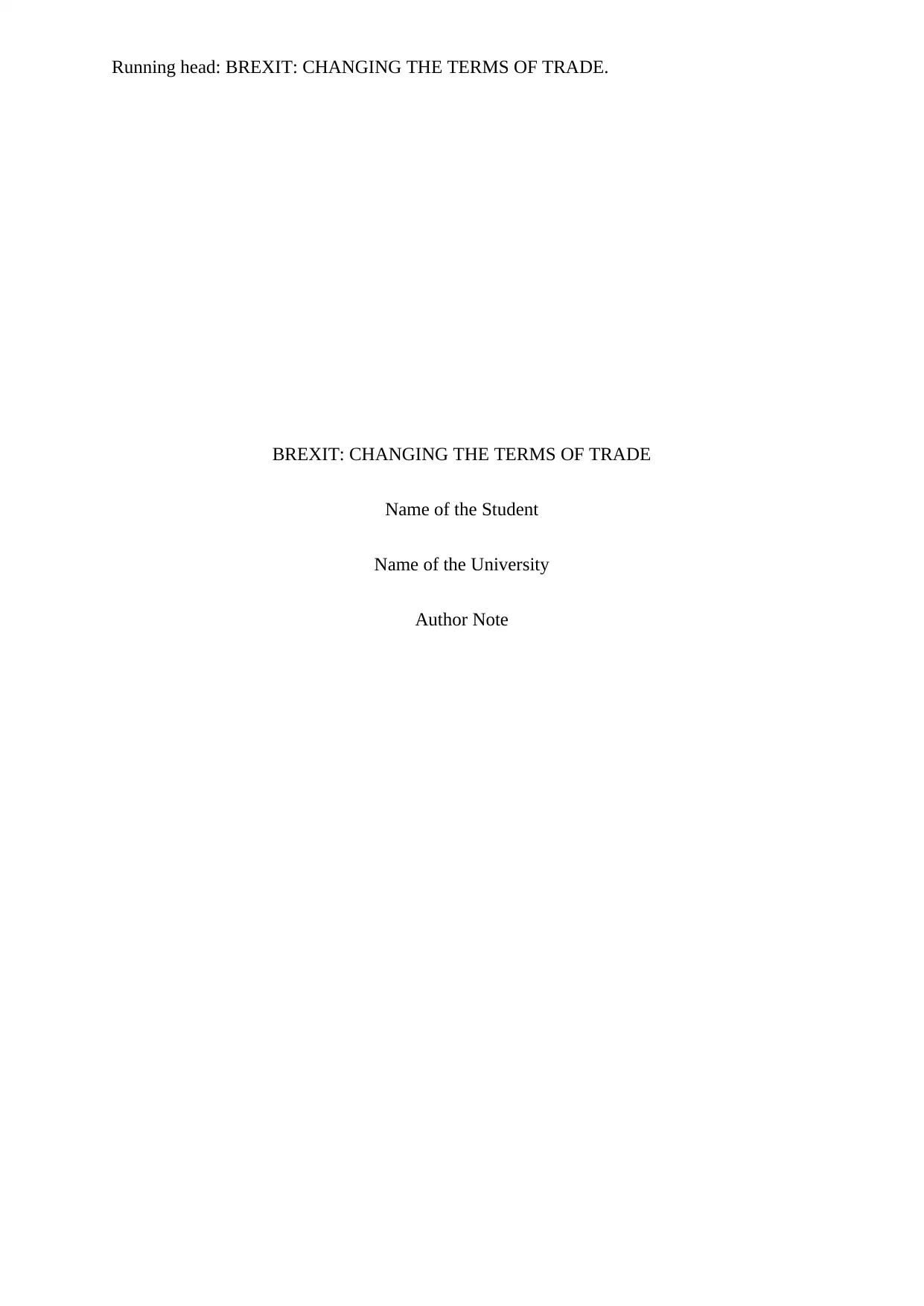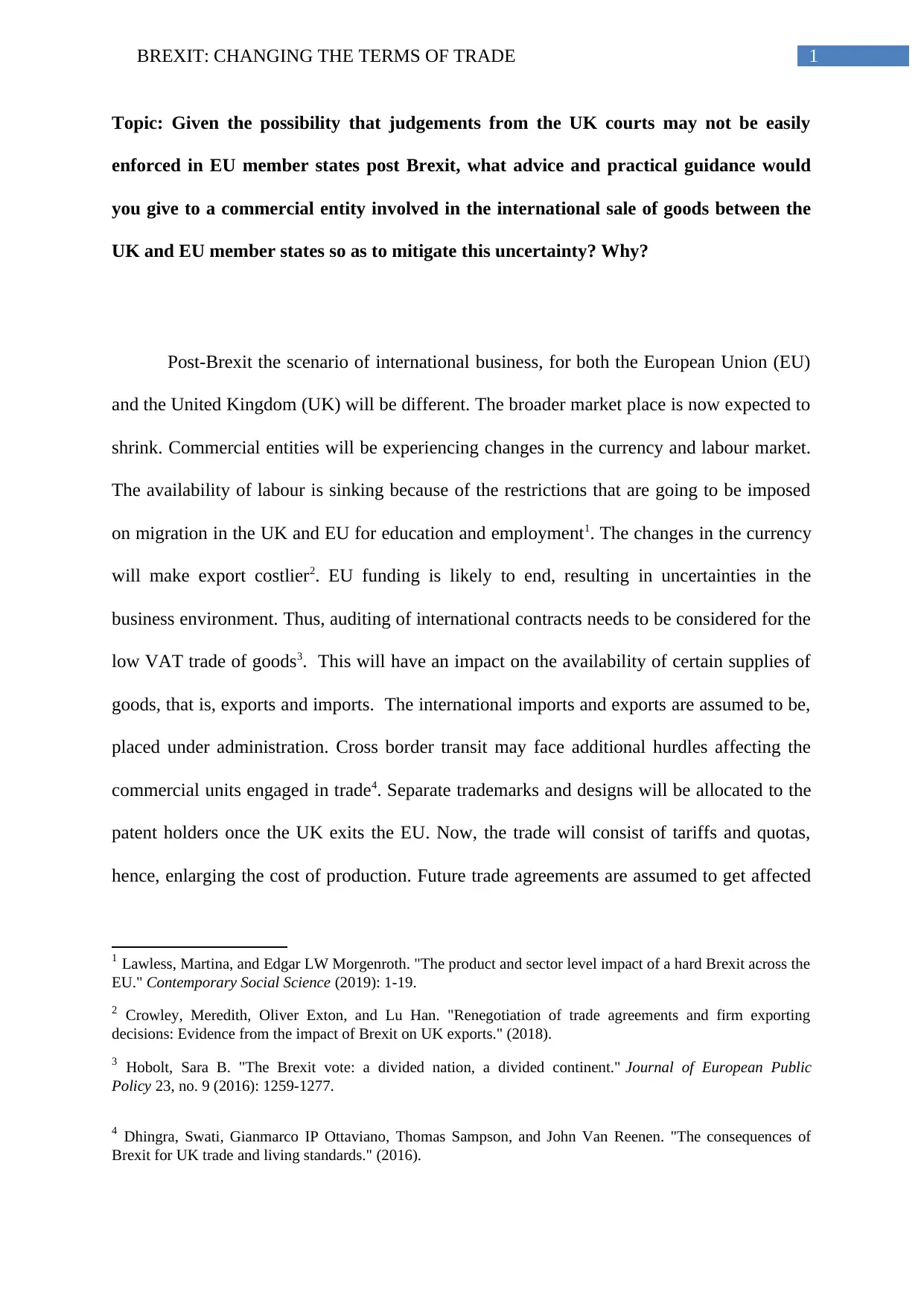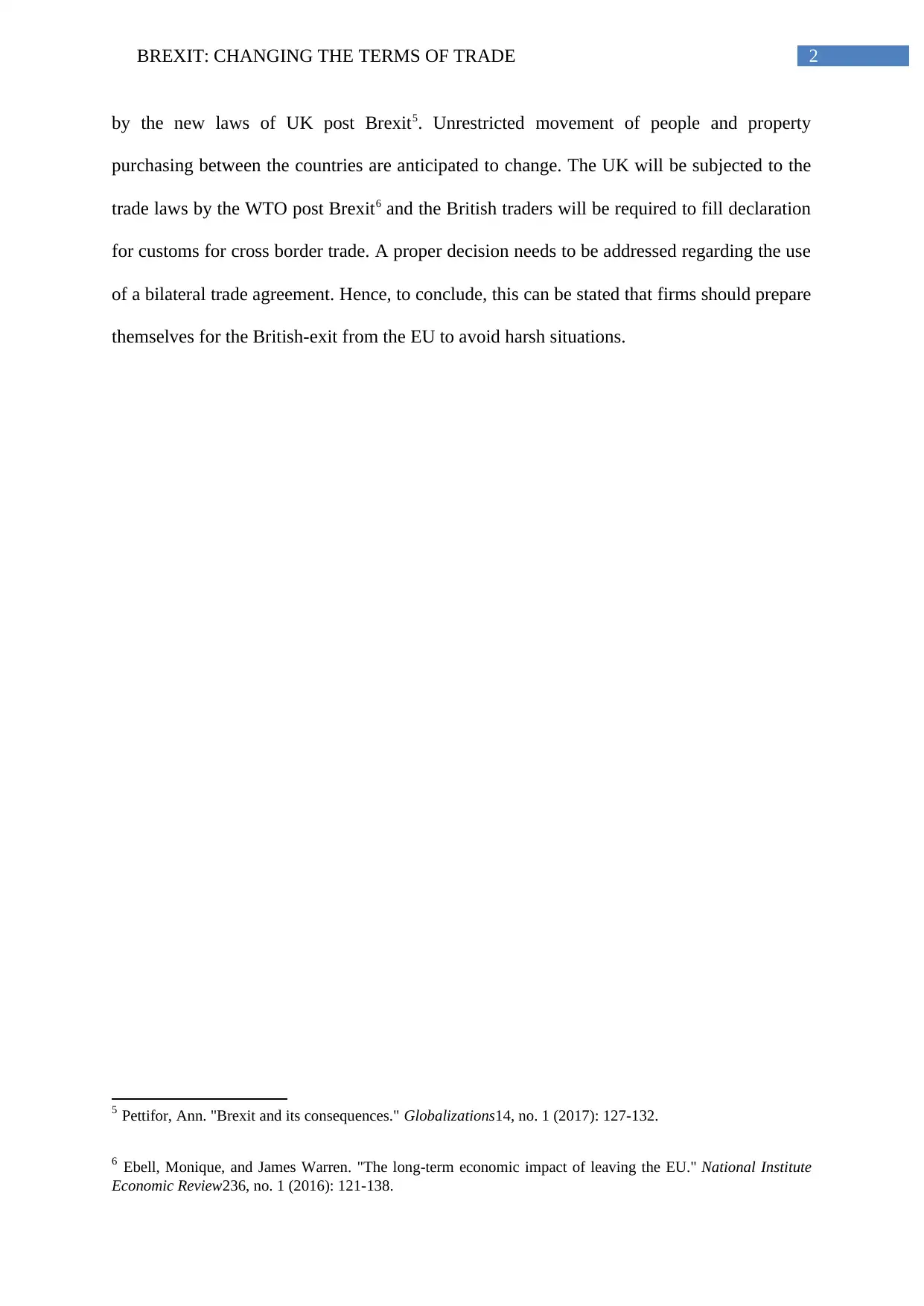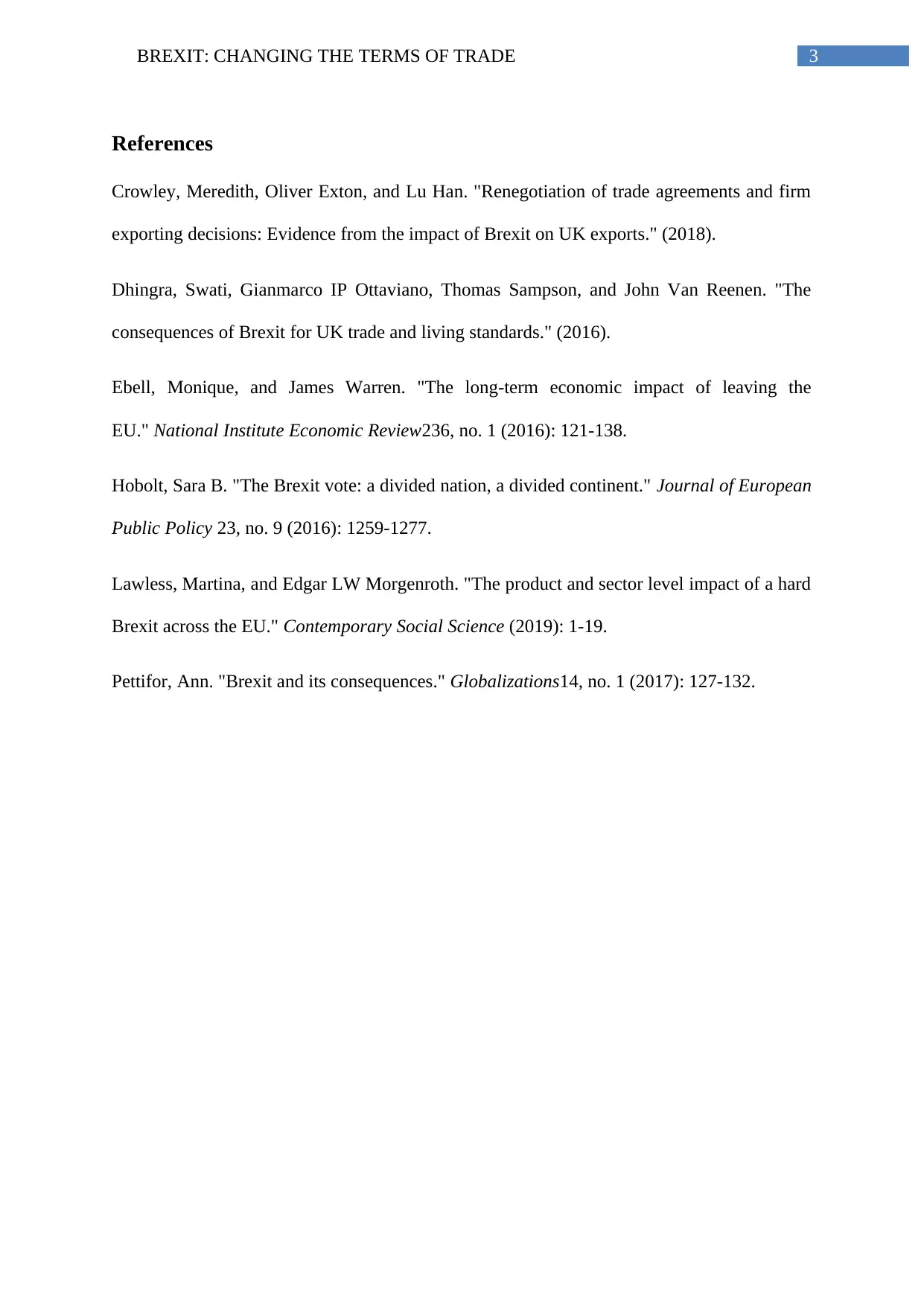Post-Brexit the scenario of international business, for both the European Union (EU) and the United Kingdom (UK) will be different. The broader market place is now expected to shrink. Commercial entities will be experiencing changes in the currency and labour market. The availability of labour is sinking because of the restrictions that are going to be imposed on migration in the UK and EU for education and employment. The changes in the currency will make export costlier. EU funding is likely to end, resulting in uncertainties in the business environment. Thus, auditing of international contracts needs to be considered for the low VAT trade of goods. This will have an impact on the availability of certain supplies of goods, that is, exports and imports. The international imports and exports are assumed to be, placed under administration. Cross border transit may face additional hurdles affecting the commercial units engaged in trade. Separate trademarks and designs will be allocated to the patent holders once the UK exits the EU. Now, the trade will consist of tariffs and quotas, hence, enlarging the cost of production. Future trade agreements are assumed to get affected by the new laws of UK post Brexit. Unrestricted movement of people and property purchasing between the countries are anticipated to change. The UK will be subjected to the trade laws by the WTO post Brexit and the British traders will be required to fill declaration for customs for cross border trade. A proper decision needs to be addressed regarding the use of a bilateral trade agreement. Hence, to conclude, this can be stated that firms should prepare themselves for the British-exit from the EU to avoid harsh situations.
![[object Object]](/_next/static/media/star-bottom.7253800d.svg)
![[object Object]](/_next/static/media/star-bottom.7253800d.svg)



